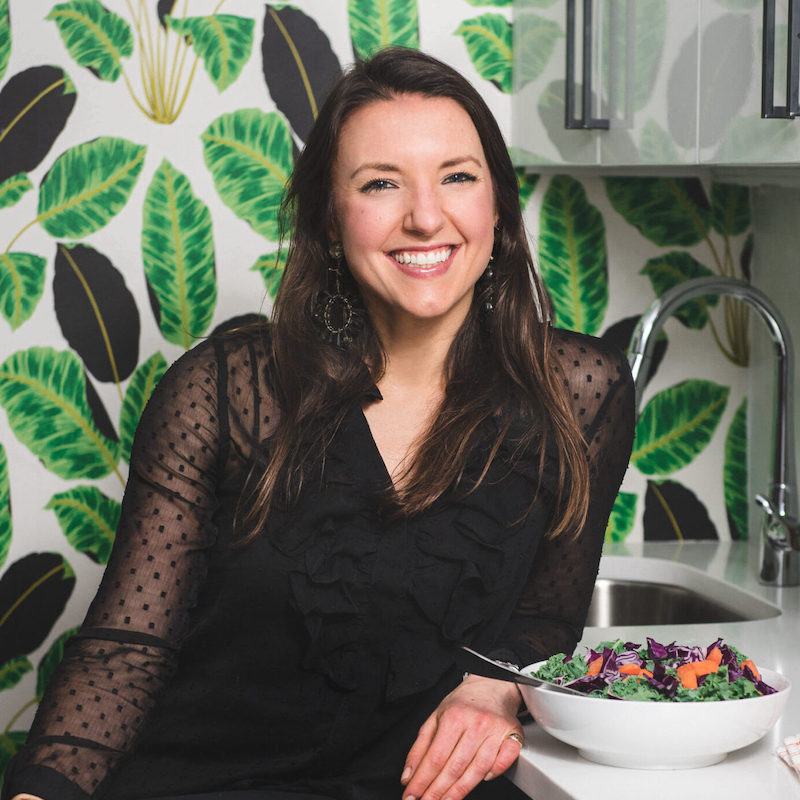August 16th, 2021
Let’s Talk Diarrhea

Diarrhea
Let’s be real, diarrhea is not the most fun or, for that matter, pleasant topic to talk about, but the reality is it happens! So many of my clients suffer from diarrhea, not to mention the countless DMs we get on Instagram from people struggling and looking for relief! So today, we are jumping into what exactly diarrhea is, reasons you may have it, as well as foods to eat and avoid when you have it or to prevent it in general!
Acute vs. chronic diarrhea
The word diarrhea is loosely thrown around, but the reality is it is more than just a watery bowel movement. Diarrhea is defined as very loose or watery stools that occur three or more times within 24 hours. We break it down into two categories – acute or chronic.
Acute diarrhea lasts for one to two weeks. Oftentimes acute diarrhea results from the body’s natural defense mechanism where it is trying to get rid of an infection, virus, or parasite. Most of us have experienced this at one point or another – hello, stomach virus that went around your kid’s school and got back to you, or food poisoning from that restaurant that didn’t look all that clean.
On the other hand, chronic diarrhea lasts longer than two weeks and is often a sign of a deeper issue. This could be as simple as a food allergy/intolerance or consistent stress, or it could be the result of a medical condition like Crohn’s or Colitis. Chronic diarrhea is not only unpleasant, but it is problematic in that it puts people at risk for dehydration and nutrient deficiencies due to the excess excretion of water and lack of absorption of nutrients.
In either case, diarrhea may be accompanied by abdominal pain, nausea, loss of appetite, weight loss, fever, and more, depending on its root cause.
Root causes of chronic diarrhea
Chronic diarrhea is a symptom of a larger problem. However, once the underlying cause is recognized and treated, chronic diarrhea often resolves.
The most common causes of chronic diarrhea we see are:
- Histamine intolerance
- Food intolerance or allergy
- Dysbiosis (imbalance of gut bacteria)
- Small Intestine Bacterial Overgrowth (SIBO)
- Head trauma/migraines
- Autoimmune conditions (Crohn’s and Ulcerative Colitis)
- Stress and Anxiety
Some of these causes can be easily addressed through diet and lifestyle, while others like Crohn’s and Ulcerative Colitis are a bit more tricky. While these conditions may not go into remission (however, they definitely can!), their symptoms can still be drastically improved through diet and lifestyle.
Foods to focus on when having diarrhea
Eating or even thinking about food when you have diarrhea feels unsettling and, in some cases, riddled in fear and panic of making the situation worse. However, if suffering from prolonged diarrhea, food avoidance is not the answer, as your body is losing a ton of nutrients and becoming dehydrated. Instead, we suggest focusing on bland foods with some fiber that are easy for your body to digest.
Food to eat when you have diarrhea:
- Bananas
- Apples
- Oats
- Bone broths and soups
- Sweet potato
- White potato
- Tea (ginger, peppermint)
- Water/electrolytes
- Psyllium husk (be careful not to overdo it)
Many of these foods (and foods in general) are more easily digested when cooked. Additionally, we suggest eating smaller meals and eating slowly to give your body time to digest and destress.
Foods to consider limiting during this time
While we do not like to deprive you of any foods; when suffering from diarrhea, we have found a handful to be problematic, so we suggest avoiding them from the time being and limiting them in the future if you find them triggering.
- Caffeine – Can stimulate the muscles in the GI tract leading to an increased urgency to use the restroom
- Alcohol – Irritating to the digestive system which cause can speed up digestion, causing diarrhea
- Fatty or fried foods – Fats are difficult to digest; if you add in fats that are highly refined and inflammatory, your body will struggle even more
- Spicy foods – Irritating to the gut lining promoting contraction of muscles leading to, you guessed it: diarrhea
- Raw veggies – While they’re packed full of nutrients and fiber, they’re more difficult to digest – try eating cooked vegetables which will have more soothing effects with all of the benefits
- Highly processed foods- Full of chemicals, sugar and fat, and artificial flavors, making them difficult to digest
- Dairy- As we get older, we produce less and less lactase (the enzyme to breakdown lactose, the protein found in dairy products)
What does an ideal bowel movement look like?
Wondering what an ideal bowel movement should look like? The Bristol Stool Chart is a diagnostic tool that helps evaluate our poop based on its shape and consistency.
As you can see, diarrhea looks more like a 6 or a 7. In contrast, loose stools are closer to a 5. However, an ideal/healthy poop is a 3 or 4.
If you’re anywhere between a 5-7, try implementing the tips found in this blog to find relief!
Bottom line
While there are many other topics we would rather be talking about, diarrhea is an important one to discuss. While it is common, that does not mean it is normal or healthy – especially if you suffer from chronic diarrhea. Getting to the root cause of your diarrhea is key to finding relief. Additionally, incorporating certain foods while limiting others may be beneficial for your symptoms.
Suffering from diarrhea or poor digestion? Click here to work with us!



